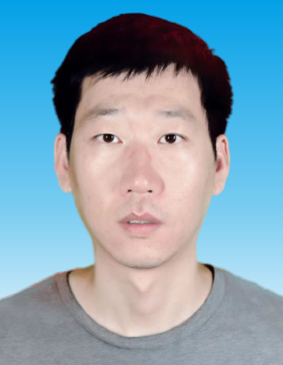Jiaxin Gong, Ph.D.
| Jiaxin Gong, Ph.D. Professor / Principal Investigator Research Interest: Cellular and molecular mechanisms of mechanosensation and its roles in physiology/pathology E-mail: gongjx2023@smu.edu.cn |
Education
09/2009 – 07/2014, Ph.D., Institute of Neuroscience, Chinese Academy of Sciences
09/2005 – 07/2009, B.S, School of Life Sciences, SUN YAT-SEN University
Experience
08/2023 – Present, Professor, The Great Bay Area Center for Brain Research, Southern Medical University
02/2016 – 05/2023, Postdoc Associate, Department of Neurobiology, UMASS Medical School
02/2015 – 01/2016, Postdoc Fellow, Department of Physics, Worcester Polytechnic Institute
07/2014 – 10/2014, Senior Research Scientist, SHANGHAI CHEMPARTNER CO., LTD
Research
Our many critical physiological functions, such as hearing, touch, proprioception, circulation, respiration and urination, require the proper sensation of mechanical forces stimulations from internal or external environment. It’s therefore not surprising that malfunction of mechanosensation could lead to serious pathological outcomes. The focus of our research is to understand the cellular and molecular mechanisms of mechanosensation and its roles in both physiology and pathology. The goal is also to promote clinical research and therapeutics development on diseases associated with mechanosensation. The lab is particularly interested in 1) identifying novel mechanosensitive channels for different forms of mechanical forces; 2) studying how biophysical properties of cell membrane control the mechano-gating process; 3) dissecting the contributions of mechanosensation to neurological disorders, including chronic pain, anxiety and brain tumors. We have made inspiring discoveries by identifying TrpA1 as a shear stress specific mechanosensitive channel and revealing the essential roles of shear stress sensing in mediating mechanical nociception and modulating intestinal stem cell proliferation in fruitflies.
Publications:
1. Jiaxin Gong#, Niraj K. Nirala#, Jiazhang Chen, Fei Wang, Pengyu Gu, Qi Wen, Y. Tony Ip*, Yang Xiang*. (2023) TrpA1 is a shear stress mechanosensing channel regulating intestinal stem cell proliferation in Drosophila. Science Advances. 9(21):eadc9660.
2. Fei Wang#, Kendra Takle Ruppell#, Songlin Zhou#, Yun Qu, Jiaxin Gong, Ye Shang, Yi Li*, Yang Xiang*. (2023) Gliotransmission orchestrates neuronal type-specific axon regeneration. Developmental Cell. 58(8):660-676.e7.
3. Jiaxin Gong#, Jiazhang Chen#, Pengyu Gu, Ye Shang, Kendra Takle Ruppell, Ying Yang, Fei Wang, Qi Wen*, Yang Xiang*. (2022) Shear stress activates nociceptors to drive Drosophila mechanical nociception. Neuron. 110(22):3727-3742.
4. Pengyu Gu, Fei Wang, Ye Shang, Jingjing Liu, Jiaxin Gong, Wei Xie, Junhai Han, Yang Xiang. (2022) Nociception and hypersensitivity involve distinct neurons and molecular transducers in Drosophila. Proc Natl Acad Sci USA. 119(12):e2113645119.
5. Pengyu Gu, Jiaxin Gong, Ye Shang, Fei Wang, Kendra T. Ruppell, Zhiguo Ma, Amy E. Sheehan, Marc R. Freeman, Yang Xiang. (2019) Polymodal Nociception in Drosophila Requires Alternative Splicing of TrpA1. Current biology. 29(23):3961-3973.
6. Song Y, Li D, Farrelly O, Miles L, Li F, Kim SE, Lo TY, Wang F, Li T, Thompson-Peer KL, Gong J, Murthy SE, Coste B, Yakubovich N, Patapoutian A, Xiang Y, Rompolas P, Jan LY, Jan YN. (2019) The Mechanosensitive Ion Channel Piezo Inhibits Axon Regeneration. Neuron. 102(2):373-389.
7. Beliveau A, Thomas G, Gong J, Wen Q, Jain A. (2016) Aligned Nanotopography Promotes a Migratory State in Glioblastoma Multiforme Tumor Cells. Sci Rep. 6:26143.
8. Wang, K., Gong, J., Wang, Q., Li, H., Cheng, Q., Liu, Y., Zeng, S., Wang, Z. (2014) Parallel pathways convey olfactory information with opposite polarities in Drosophila. Proc Natl Acad Sci USA. 111: 3164-3169.
9. Gong, J., Wang, Q., Wang, Z. (2013) NOMPC is likely a key component of Drosophila mechanotransduction channels. Eur. J. Neurosci. 38:2057-2064.
10. Liang, B., Duan, B.Y., Zhou, X.P., Gong, J.X., Luo, Z.G. (2010) Calpain activation promotes bace1 expression, APP processing, and amyloid plaque formation in a transgenic mouse model of Alzheimer disease. J Biol Chem. 285: 27737-27744.
上一条:Tian Zhou Ph.D.



